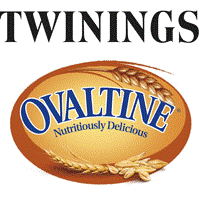PARTNERS
Issara's partners play key roles in all 3 aspects of Issara's work - empowering job seekers and workers, transforming supply chains, and transforming the business and human rights ecosystem.
Read below to learn more about some of the groups that we collaborate with - civil society and grassroots, global brands and retailers, and academic research institutions.
CIVIL SOCIETY & GRASSROOTS
Educating and empowering workers, building worker power, and driving remediation through the Inclusive Labor Monitoring Action Network
Issara's civil society, trade union, and grassroots partners - such as the Burmese ones shown here, during an annual strategy session - play a vital role in both source and destination countries. In rural communities serving as out-migration hotspots, they educate job seekers about safe ways to find jobs (without informal brokers), and they build the capacity of community-based ambassadors to spread knowledge and empowerment even farther.
For exploited job seekers and migrant workers returned to home communities, as well as for exploited migrant workers in destination countries, partners support efforts toward remediation and justice in the courts and local administration. Partners network and collaborate on a regular basis, with coordination and training assistance as well as grant funds from Issara.
Read more about collaborating partners on www.workervoices.org!

GLOBAL BRANDS & RETAILERS
Creating space for change and driving remediation and systems strengthening within their supply chains.
Issara partners with global businesses through our Strategic Partners program to drive broad industry change, and more swift and ethical responses to labour abuses in their Thai and Malaysian supply chains. We work directly with brand and retailer partners, their suppliers, and associated recruiters, based on clear guidelines to strengthen how policies are created and operationalized, and ensure quality, timely remediation toward cleaner supply chains. Connecting brands and retailers directly to worker voice, and worker validation of issues and the quality of remediation, distinguish the Issara system from all others.


















ACADEMIC RESEARCH COLLABORATION
Raising the bar on how evidence is generated regarding the true impacts of corporate responsibility on workers
The rigor of most examinations of workplace conditions is extremely poor. Most social audits and social compliance schemes recommend interviews of just small handfuls of dubiously selected workers amongst workforces of thousands, often in dubious interview conditions that are controlled by the employer, and with no safeguards against retaliation. And with global brands and retailers passing the pressure and cost of audits onto suppliers more and more, it is highly questionable how audits could ever improve as a due diligence tool when employers are in full control of their own assessment.
Drawing out emerging trends and concerns from the complex dynamics of human rights, supply chains, and geopolitical contexts are best done through academic collaborations. These are at the heart of our partnership approach, bolstering our focus on providing better evidence and data as a public good, as well as an integrated part of our evaluation efforts.
Most recently, through 2019-2021 we are collaborating with MIT's Sloan School of Management to examine how labour shortages impact forced labour conditions for migrant workers. In 2019, we also partnered with Brown University on a groundbreaking global study of worker feedback technologies, and with Coventry University on conditions in the Indonesia fishing sector (both studies generously funded through the British Academy). Reports from these collaborations can be found on our Reports and Data page!
At right: Professor Elena Shih (Brown University), bottom center, and Aaron Halegua (top center) meet with Burmese migrant workers to understand their experiences with worker voice technologies.





